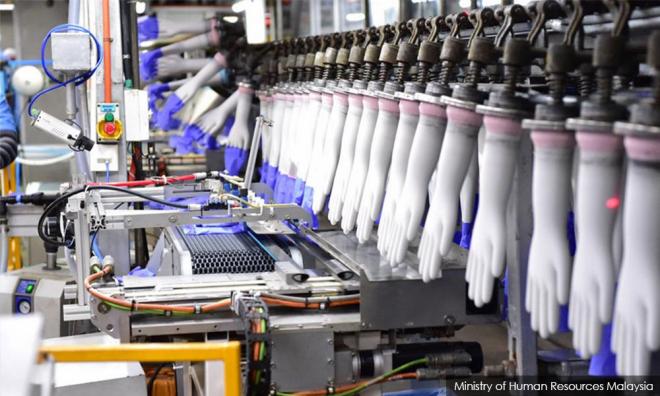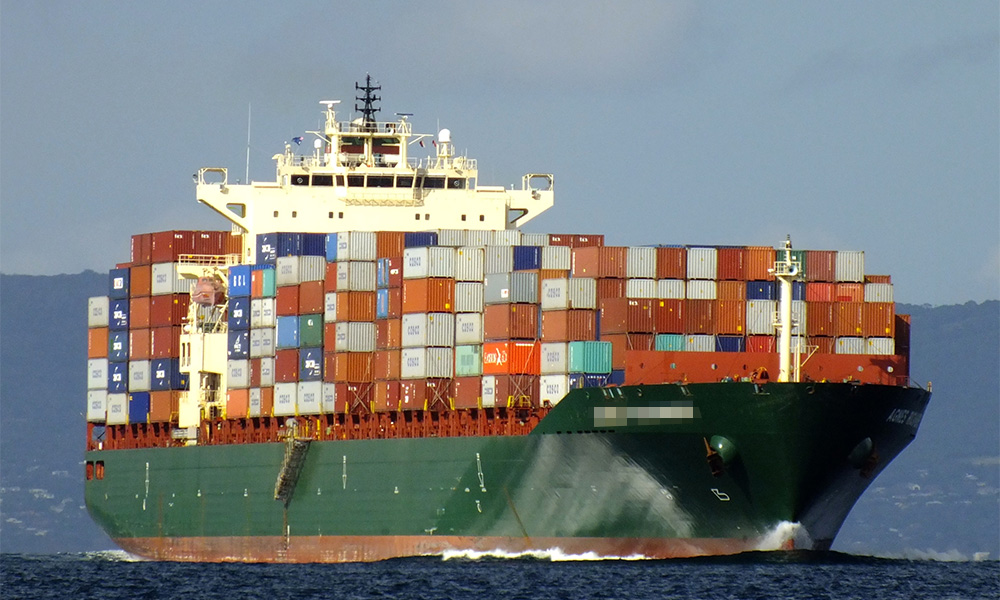
An economist has painted a rather dismal picture of the country's economic situation due to Covid-19, as Malaysia struggles to get back on its feet with reopening measures under the conditional movement control order (MCO).
Malaysian Institute of Economic Research (MIER) head of research Shankaran Nambiar said export-led manufacturing in Malaysia is going to be "seriously crippled".
He said industries that are dependent on the export-oriented industries, be it semiconductors, electrical, metal fasteners, machinery and equipment are all going to be badly hit.
However, not all is lost as industries in health care, medical equipment and products (for instance, rubber gloves) and the pharmaceutical sector will be able to stay on top of the deluge.
"It will help to get these industries on their feet and get over their constraints," Shankaran told Malaysiakini.
On May 1, Prime Minister Muhyiddin Yassin announced the conditional MCO and reopening of some businesses on May 4 although Penang is among six states not adhering to the order yet.
Senior Minister Azmin Ali said if the order is not followed responsibly, many small and medium businesses would be shut down, unemployment rate would rise and the export market would be severely affected as Malaysia is active in the global supply chain.
Shankaran (below), who is a former academic, explained that Malaysia’s export-oriented model will be "severely tested" for the duration of the next three to six months.

He warned it may take a year before reasonable recovery happens.
"I do not think people are sufficiently aware of the enormity of the outbreak's impact on the global economy," Shankaran said.
"It is not a question of how fast Malaysian companies can get back on their feet because global demand will not be there for a long while," added the author of Malaysia in Troubled Times.
"The world is going to see the worst recession since the great depression."
He pointed out that Fitch has put global growth for 2020 at -1.3 percent, although it affirms Malaysia’s “A-” rating and projects 5.8 percent growth in 2021.
More recently, Goldman Sachs revised its global growth estimates downwards to -2 percent.
Washington-based International Monetary Fund’s chief economist Gita Gopinath projected a -3 percent global growth for 2020.
Shankaran said it was not surprising that a global recession should emerge given the multiplicity of factors at work.
He said the crisis is unprecedented because it has provoked a deglobalisation response, where countries have closed their borders to foreigners, shipments have been halted, the aviation industry has come to a standstill, and the movement of raw materials, intermediate goods, and labour have been severely restricted.

Meanwhile, Shankaran said another feature of the Covid-19 crisis is the simultaneous disruption of production and constrained demand due to wage shrinkage.
He reminded that the world’s leading engines of growth have been affected - the US, China, EU and Japan.
These countries can be seen as nodes of growth which generate trade flows and global demand for goods and services, affecting the economies they are linked to, he added.
"This can be expected to reduce the flow of goods across nations as well as the demand for inputs.
"The lower demands for goods have had an effect on commodity prices and the decline in the price of oil to an 18-year low is symptomatic of this," he said.
A World Trade Organisation study forecasted that Asean is likely to demonstrate a -9.3 percent change in real exports for 2020 relative to the benchmark without the pandemic.
Shakaran said assuming a less pessimistic scenario, there would be an 18.2 percent contraction in real exports; and a drastic -22.1 percent change against the benchmark should recovery be L-shaped.
Superpowers, specifically China, EU, Japan and the US are likely to have a decrease of about 9 percent at best and a change that is close to -21 percent in a pessimistic scenario, he said.
"The outlook for global exports at the sectoral level is equally dismal.
"Aside from the pharmaceutical industry, all other exports are expected to decline," he said.
"Of relevance to Malaysia are fossil fuels and petroleum products, both of which will contract by 5.5 percent and 7.7 percent, respectively.
"It is forecast that computer and electronic products will decline -10.5 percent in the optimistic scenario and -22.6 percent in the pessimistic case," he added.
He also said global exports from the manufacturing sector such as electrical equipment and machinery do not have an encouraging outlook either. - Mkini



No comments:
Post a Comment
Note: Only a member of this blog may post a comment.